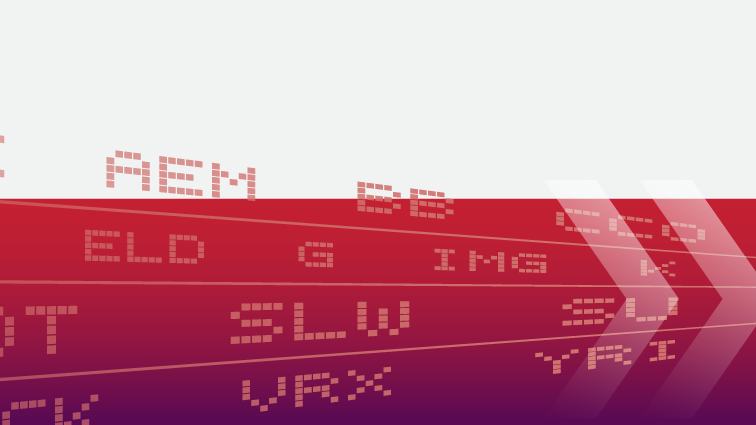Banking on Banks

With another quarter of missed earnings, analysts began cutting their price target for Canadian Imperial Bank of Commerce (TSX: CM, Friday’s close $78.45). CIBC reported a profit of $678 million or $1.60 per share. Up from the same period last year, but well off the $1.80 estimate that analysts had been forecasting.
The problem at CIBC was the same as it was at other banks. Loan margins being squeezed by increasing domestic competition. But CIBC, with its large depositor base, relies almost entirely on its ability to compete domestically. Which is why it was hit harder than other banks.
Of course when one cuts their price target for a Canadian bank, it is anything but earth shattering. UBS analysts Peter Rosenberg, cut his one year price target to $88 per share from $90 per share, but maintained his “buy” rating. Peter Routledge the bank analyst at National Bank cut his target from $91 to $89. Although he hedged his position with a “sector perform” rating on the company, down from “outperform.”
Within any sector there will be bumps in the road. The real question is how likely is it that Canadian bank stocks will continue their downtrend? In that light, it is hard to imagine much downside when you consider that CIBC is yielding 4.5% based on their current dividend. Let’s face it, despite short term reservations, Canadian banks are well-capitalized and among the best in the world.
Another consideration is the recent weakness in the North American markets. If this soft patch continues, investors with itchy trigger fingers, may seek out defensive alternatives. And for “safe haven” alternatives, one naturally gravitates to high dividend paying stocks, like utilities, pharmaceuticals and dare we say it, banks.
Mind you, soft patches are a two-edged sword. While investors may seek out defensive alternatives, economic weakness will ultimately thwart any real recovery in stock prices over the near term. And that includes Canadian banks.
With that in mind, investors who own CIBC might look at writing covered calls. Or for investors who are looking for some shelter, could buy CIBC and write the October 82 calls at $1.50.
If you are more aggressive, and think there is a possibility of a turnaround in they sector, you might look at buying calls on a broad Canadian bank ETF, such as the iShares S&P/TSX Capped Financials Index Fund (TSX: XFN, $23.95). Look at the XFN Sept 24 calls at 72 cents.
President, CIO & Portfolio Manager
Croft Financial Group
Richard Croft has been in the securities business since 1975. Since February 1993, Mr. Croft has been licensed as an investment counselor/portfolio manager, operating under the corporate name R. N. Croft Financial Group Inc. Richard has written extensively on utilizing individual stocks, mutual funds and exchangetraded funds within a portfolio model. His work includes nine books and thousands of articles and commentaries for Canada’s largest media channels. In 1998, Richard co‐developed three FPX Indexes geared to average Canadian investors for the National Post. In 2004, he extended that concept to include three RealWorld portfolio indexes, which demonstrate the performance of the FPX portfolio indexes adjusted for real-world costs. He also developed two option writing indexes for the Montreal Exchange, and developed the FundLine methodology, which is a graphic interpretation of portfolio diversification. Richard has also developed a Manager Value Added Index for rating the performance of fund managers on a risk adjusted basis relative to a benchmark. And In 1999, he co-developed a portfolio management system for Charles Schwab Canada. As global portfolio manager who focuses on risk-adjusted performance. Richard believes that performance is not just about return, it is about how that return was achieved.
The information provided on this website, including financial and economic data, quotes and any analysis or interpretation thereof, is provided solely for information purposes and shall not be construed in any jurisdiction as providing any advice or recommendation with respect to the purchase or sale of any derivative instrument, underlying security or any other financial instrument or as providing legal, accounting, tax, financial or investment advice. Bourse de Montréal Inc. recommends that you consult your own advisors in accordance with your needs before making decision to take into account your particular investment objectives, financial situation and individual needs.
All references on this website to specifications, rules and obligations concerning a product are subject to the rules, policies and procedures of Bourse de Montréal Inc. and its clearinghouse, the Canadian Derivatives Clearing Corporation, which prevail over the content of this website. Although care has been taken in the preparation of the documents published on this website, Bourse de Montréal Inc. and/or its affiliates do not guarantee the accuracy or completeness of the information published on this website and reserve the right to amend or review, at any time and without prior notice, the content of these documents. Neither Bourse de Montréal Inc. nor any of its affiliates, directors, officers, employees or agents shall be liable for any damages, losses or costs incurred as a result of any errors or omissions on this website or of the use of or reliance upon any information appearing on this website.
BAX®, CADC®, CGB®, CGF®, CGZ®, LGB®, MX®, OBX®, OGB®, OIS-MX®, ONX®, SCF®, SXA®, SXB®, SXF®, SXH®, SXM®, SXO®, SXY®, and USX® are registered trademarks of the Bourse. OBW™, OBY™, OBZ™, SXK™, SXJ™, SXU™, SXV™, Montréal Exchange and the Montréal Exchange logo are trademarks of the Bourse. All other trademarks used are the property of their respective owners.
© 2024 Bourse de Montréal Inc. All Rights Reserved.
